26.07.2024
For Viktor Royko, work at WANO Paris Center means personal development and new perspectives
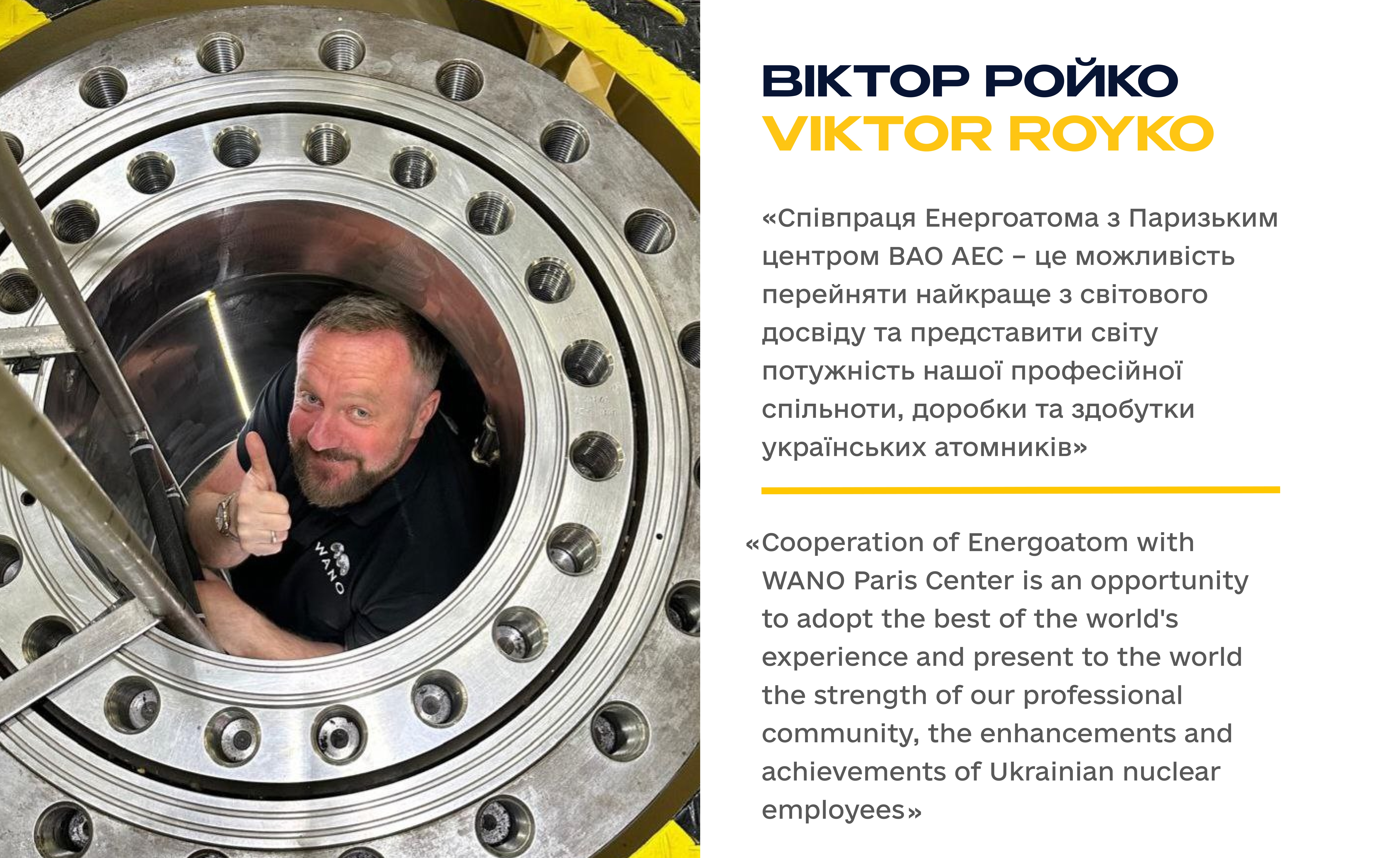
Our interlocutor is Viktor Royko, a WANO Paris Center secondee from Energoatom, who has 28 years of working experience at the Khmelnytsky NPP. A casual occurrence led him to nuclear industry, but, as it was found, it was fateful.
A native of Rivne, he dreamed of radio electronics since childhood, and after graduating from the Kyiv Polytechnic University with a diploma of engineer-designer-technologist, he began his professional career at the Khmelnytsky NPP as an employee of I&C (Instrumentation & Control Department). After that, he worked as an instructor at Training Center of the plant, for 12 years; since 2013 – in the position of Head of the Department of Educational and Methodological Support, and in recent years – in the position of Deputy Head for Quality of KhNPP Training Center. Numerous victories in competitions for professional skills, competitions for scientific reports, introduction of new and progressive aspects into the work process – that marked the period at Training Center.
The professional history of Viktor Royko is an example of how a specialist who constantly strives for personal development and improvement and has a thirst for new knowledge expands his personal and professional space at the international level. Viktor is a creative person with a sense of humor; he is fond of the art of theater, the history of Ukraine and the world history, and traveling. His life credo is the following: accept challenges that require efforts.
- Viktor, for 28 years of working at the Khmelnytsky NPP, which stages of your career as a nuclear engineer do you consider to be the most important and defining for you?
- First of all, that was the period when I worked as an instructor in Department for Operations Training of KhNPP TC. I worked in that position for more than 10 years and learned a lot, including analyzing information, explaining complex things in clear terms, interacting and communicating with people. It was my favorite job! Although it was difficult at the beginning, experienced specialists came to the training sessions, in particular unit shift supervisors, plant shift supervisors. I tried to approve myself well, to tell trainees something new and interesting. Moreover, the biggest reward was the gratitude expressed by the people at the completion of the training, when they mentioned that my training session was the best of that training cycle.
I would like to emphasize that in the position of instructor, the experience of operational work for I&C Department helped me a lot. I would like to thank Anatolii Novak, I&C Shift Supervisor, for that; he did not allow me to relax, constantly encouraged me to learn and develop myself.
- What do you consider to be your achievements when you worked at TC? After all, such work has a creative component, requires inspiration, even persistence.
- In the early 2000s, we started developing educational materials for completing typical training programs for specific positions of operations staff; in particular, I developed educational materials on I&C subjects. “Methodology guidelines for the development of educational films” were created for the first time at Khmelnytsky NPP TC. At that time, I was already Head of Educational and Methodological Support Department, and TC Head, Volodymyr Isupov, was interested in the development of the training system at the Khmelnytsky NPP. It was time to create educational films, but there were no methodical recommendations. I was given the task of developing them. I read many books, reviewed many materials on that topic. As a result, I developed our plant methodology, according to which educational films for personnel began to be produced at the Khmelnytsky NPP. Later, similar methods appeared on other sites.
- Did you have the experience of participating in international programs or projects before working at WANO Paris Center?
- My first public speech in English on an international site took place in 2007 – at a symposium within the framework of the Dysnai festival at the Ignalina NPP in Lithuania. Ie was also involved as an expert in three WANO NPP support missions (2014, 2016 and 2017).
I also have work experience in IAEA events on the subject “Systematic approach to training”, “Knowledge management”, which were held in Austria (2017, 2019) and Germany (2018). It was interesting and useful to take part in those professional meetings – taking into account the constant improvement of our training programs for NPP professionals. However, the working language there was English, but my level was average at that time. Therefore, when it was the first time, I agreed the proposal to present a report at such an event. Because I think, it is worth accepting challenges that require efforts. After all, if you refuse, of course, you will not lose, but you will never win. It was not easy, but I made a successful speech and even answered questions. In general, that first IAEA event was an impetus for me to continue participating in such meetings. Moreover, to improve English.
- How did your professional history as a secondee begin?
- The main requirement for applicants for the position of secondee of WANO PC is work experience in relevant positions in nuclear power industry and command of English. Therefore, the first thing I did when I was nominated to Paris Center, I began to look for a tutor. And I found it! I succeeded -– a teacher from Rivne, a candidate of sciences in English with perfect experience, began to teach me. We worked well for eight months, and that was how long we had to wait until I was invited to the first test related to English language skills. It passed successfully. The next test was a professional interview with WANO NPP representatives, where mostly technical questions were asked. It was much more difficult. Nevertheless, that second stage of selection, as it was found, also passed. Because a decisive test was waiting ahead – a test peer review, which took place in October-November 2023 at the Goesgen NPP, Switzerland.
- Therefore, how did your test mission pass?
- Frankly speaking, it was a challenge. From my work experience at the Khmelnytsky NPP, I had an idea about peer reviews. However, Paris Center has its own approaches to them, and those had to be mastered. The mission was preceded by a preparatory week in Paris. In particular, we studied documents; some of them were in English, and some (diagrams, tables) in German. The working language and documentation at the Goesgen NPP is German, so we were accompanied by English-German translators at the site from the beginning of the mission.
Moreover, there I had to work alone, without any experienced colleague by my side. In my area “Personnel training, staff work and human factors” only one expert is envisaged in the peer review team. It was extremely difficult. After all, as a beginner, I did not know all the peculiarities of the review process. Team Leader Vincent Chrétien, who, despite his busy schedule, found time for me, and that was very helpful.
However, I was able to outline some areas for improvement (AFI). However, my colleagues did not support me, although my counterparts from the plant agreed those areas. At first, I felt terrible disappointment, because I put many efforts into conducting interviews, performing observations, collecting facts and coordinating them with my counterparts. However, when in the end only half of all areas for improvement proposed by our team survived, I calmed down. The fact is that WANO NPP has a very balanced selection of facts for AFI, and only strong ones, that are related to the NPP safety, shall be chosen.
In the end, my work received positive comments; the mission leader evaluated it positively. At the end, he even asked encouragingly: “When will you come to our place, to Paris?"
- In general, what were your impressions at that Swiss NPP?
- As for the Goesgen NPP, I have made a conclusion that in terms of production and safety culture, this NPP is at a high level among European plants. The Swiss people also impressed me by their mentality – they are extremely free people, there have never been any dictatorships, etc. in their country. Therefore, if you want to prove something to them, you need to communicate with evidences. In general, participation in such missions is really an opportunity to share experience and knowledge with colleagues, to develop yourself.
- It has been six months since you were a secondee of WANO Paris Center. How has your professional activity changed since you have been working at Paris Center?
- My work at the Khmelnytsky NPP Training Center involved NPP personnel training. My current job title is Support Team Leader. The main task is to organize and conduct NPP support activities that are part of Paris Center: support missions, benchmark visits, workshops, etc. My previous experience as an instructor, head, certainly helps me, but the work is completely different.
Now, as a trainee, I am involved in support missions. Their purpose is to help in those issues or areas that the plant identifies as problematic. The NPP applies to the regional center for a support mission, the request is reviewed – and PC organizes a visit of experts to the site. Experts present their experience, conduct tours, interviews, study documentation, and identify positive and negative points. As a result, proposals and recommendations should be developed – what exactly the NPP can implement or improve after the mission.
- That is, your further activity in PC will not be related to peer reviews, as perhaps expected, won’t it?
- Yes, my area is support missions. My professional background was probably decisive.
- What was the process of your adaptation to the new job?
- In January-February of this year, as a new secondee, I passed theoretical and practical training in PC Office and at the Saint-Laurent NPP (France). In addition, before the training, distance learning took place on the PC platform.
- Is it known that your first support mission was for the South-Ukraine NPP?
- Yes, specifically for the South-Ukraine NPP, on the topic “Root cause analysis”. The mission took place in April, in Bucharest. Because of the war, such measures for Ukrainian nuclear power plants are carried out remotely or in Europe. Since I am still studying, I was there as a trainee. I also worked as a translator; this is what I remember most from my first mission.
- Where and with what missions have you assisted during your time working at PC?
- My certification for independent work is a support mission at the Mochovce NPP, Slovakia, which is scheduled for October 2024. Until then, an internship, that is, practice during which I conducted classes for experts, developed draft reports, presentations, etc. My head Gabriela Hampel from the Beznau NPP, Switzerland, is an extraordinary, wonderful person and a powerful professional. In May-June, as her assistant, I participated in support missions at the Bugey NPP, France, and the Paks NPP, Hungary.
- What is next? Maybe you have a dream to visit a certain plant, haven’t you?
- Several events are planned for the end of this year. The main thing is to get the Support Team Leader certificate. In addition, for the future, it would be interesting to visit Great Britain – one of the nuclear power plants and the Sellafield nuclear complex.
- Could you outline the significance of your new job in Paris Center?
- I take it as personal development and new perspectives. I am very glad that I work in the area of support, which gives great opportunities to see and learn new things. Support missions have different topics. The ones I participated in were dedicated to root cause analysis, use of procedures, outage evaluation. Imagine what a broad picture can be seen in three years! There is no doubt; these will be improvements and expansion of professional horizons. I like it, although it requires a lot of work. Yes, I have spent a long time trying to figure out what is going on with the maintenance topic, because I would like to repeat – unfamiliar terminology in English. In general, this is an opportunity to constantly learn something new and share your own knowledge.
- That means you were fascinated by this work, weren’t you?
- Extraordinary! It would be good if Ukrainians would also start working in Paris in the future. Because there is a difference when you are close to your colleagues, you feel a team relationship, in comparison with the situation when you communicate through a screen. However, these are the realities of war.
- What is the working atmosphere like in Paris Center?
- It is very positive. Openness and benevolence reign there. I want to note the attitude towards people. It feels that you are respected as a professional and as a person. If you don't know something, they will be happy to help, etc.
- And how do your colleagues in Paris Center react to the russian aggression in Ukraine, the occupation of the Zaporizhzhia NPP, russian attacks on Ukrainian power plants?
- WANO Paris Center is very concerned about the support to Ukraine and the help to our NPPs. At one of the general meetings, Pierre Terrien, the coordinator of WANO PC cooperation with JSC “NNEGC “Energoatom”, devoted an entire report to the topic of the war in Ukraine, Ukrainian nuclear employees, Zaporizhzhia NPP, in which he disclosed terrible facts and photos confirming aggression, attacks, destruction. He emphasized what our specialists do in such conditions, emphasized the high professionalism of Ukrainians. Everyone present there was simply stunned. I think that they were full of respect for the Ukrainians, because no one had worked in such conditions and many did not even understand what it was to ensure the safety of the NPP in conditions of missile attacks.
I saw Ukrainian flags in Paris, Zurich, actions in support of Ukraine. Among my entourage, there are people who provide great support to Ukraine. A French colleague has developed a prototype of a drone that can be useful to our army and has turned to our volunteers. However, there are those who simply do not understand all this horror, because it is far from their home. In general, people in Europe still cannot believe that such barbarism is possible in the XXI century.
- Do you agree with the statement that secondees are ambassadors who represent their company and country abroad?
- Not only secondees, but also everyone who communicates with our foreign colleagues. Our behavior and attitude creates an impression about our industry and about the whole Ukraine.
- Why is it important for Energoatom that Ukrainian nuclear employees participate in the WANO activities, to become secondees?
- This is an opportunity to learn the best of world experience. An opportunity to present to the world the power of our professional community, the enhancements and achievements of Ukrainian nuclear employees.
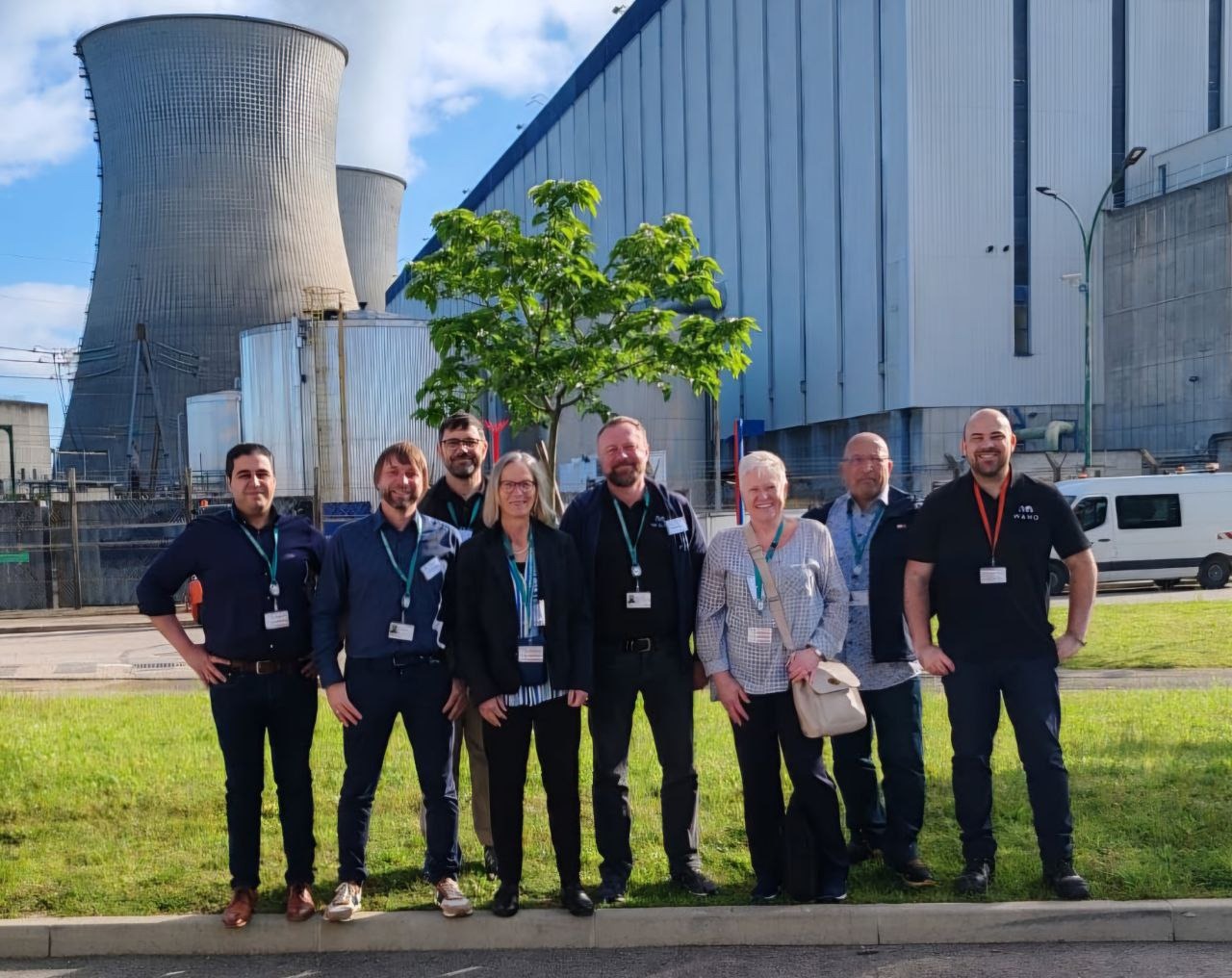
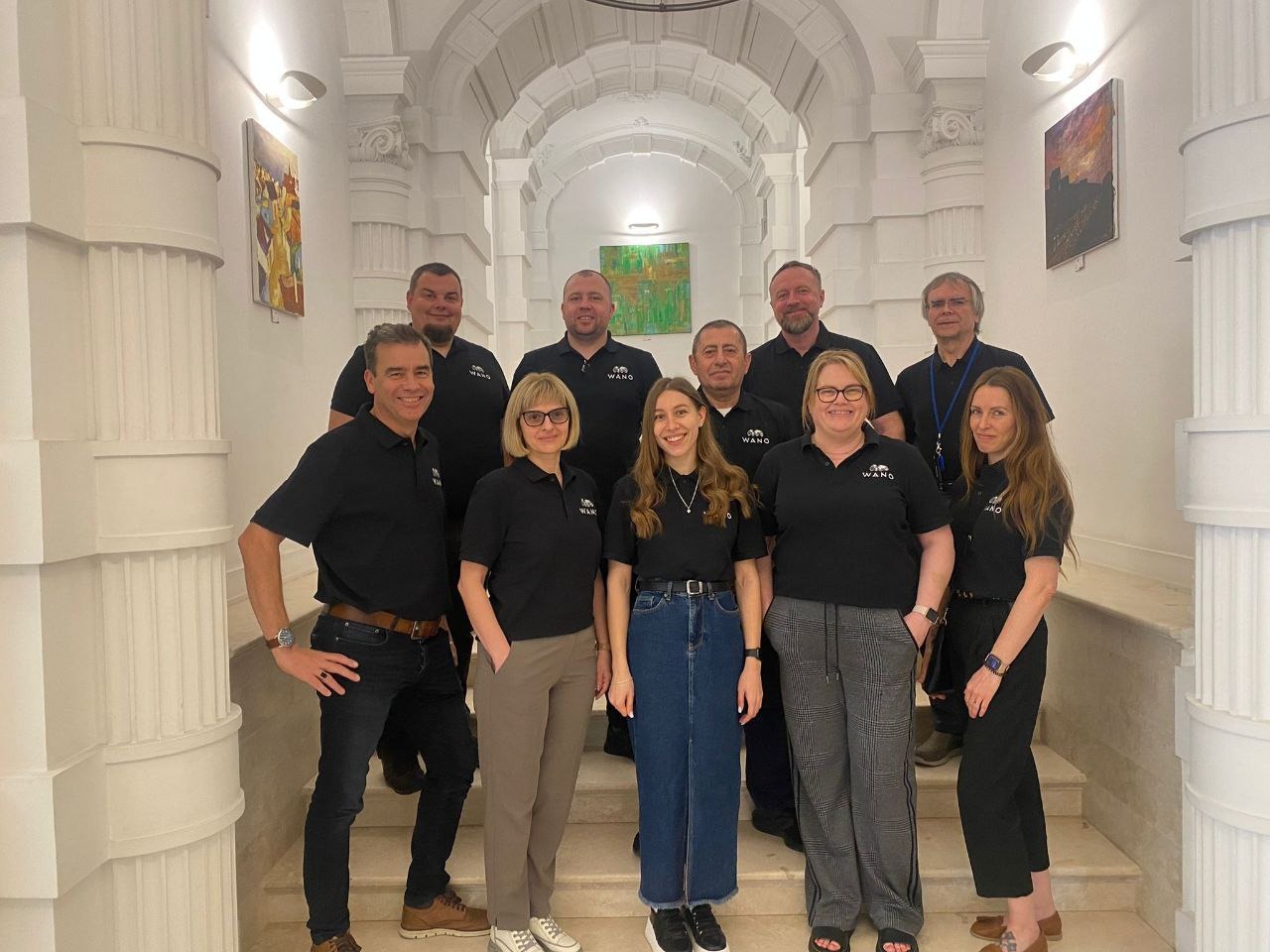
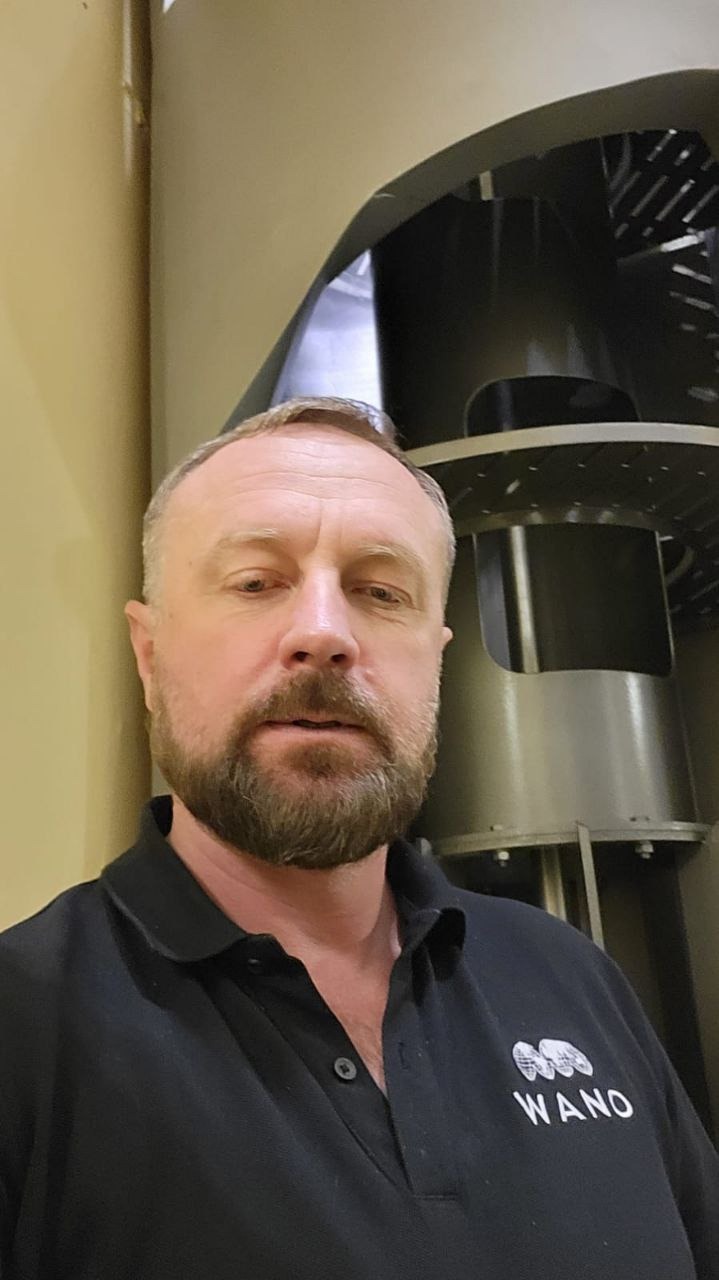
MORE NEWS
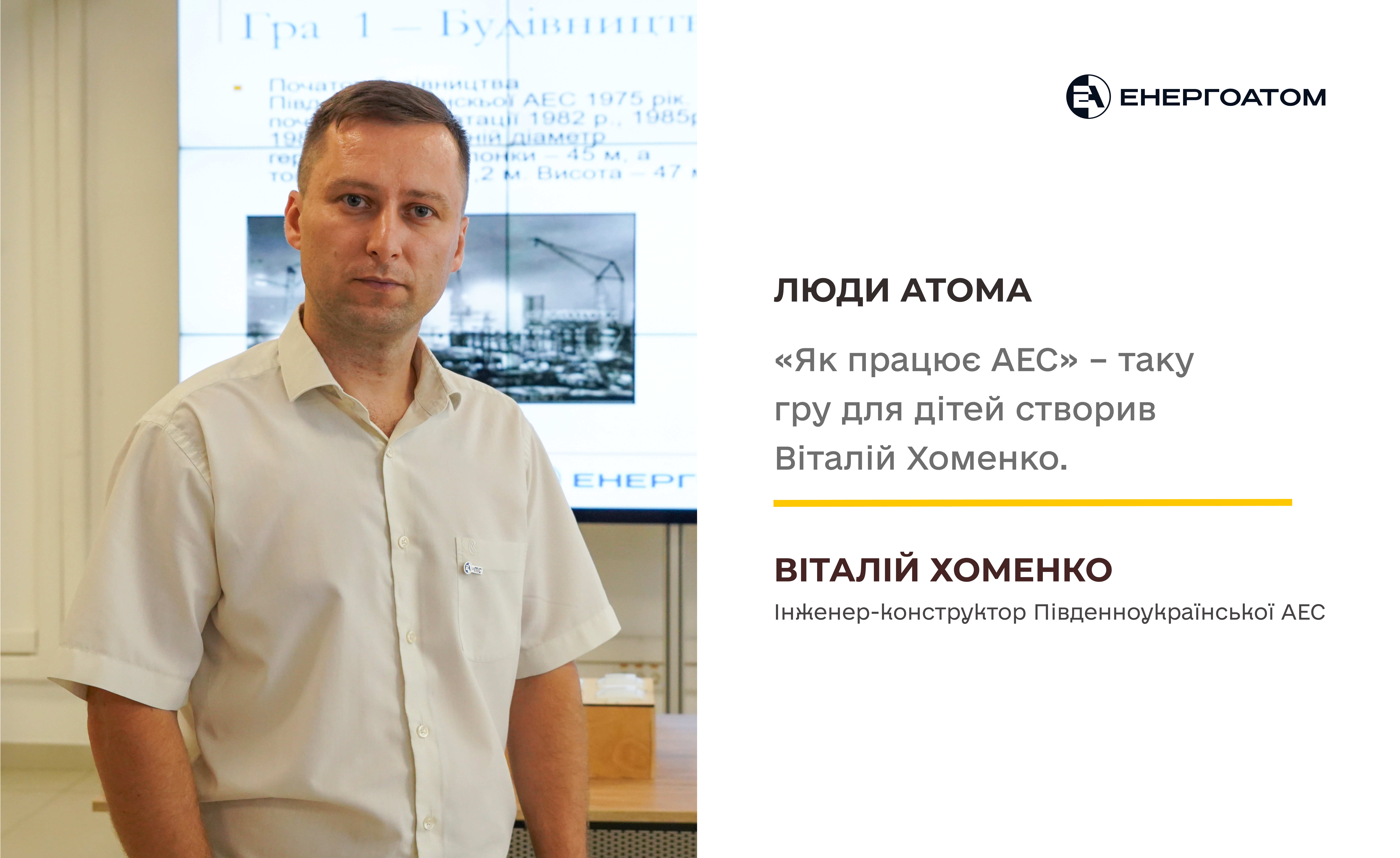
Game to get acquainted with NPPs based on Vitalii Khomenko's idea
20.09.2024
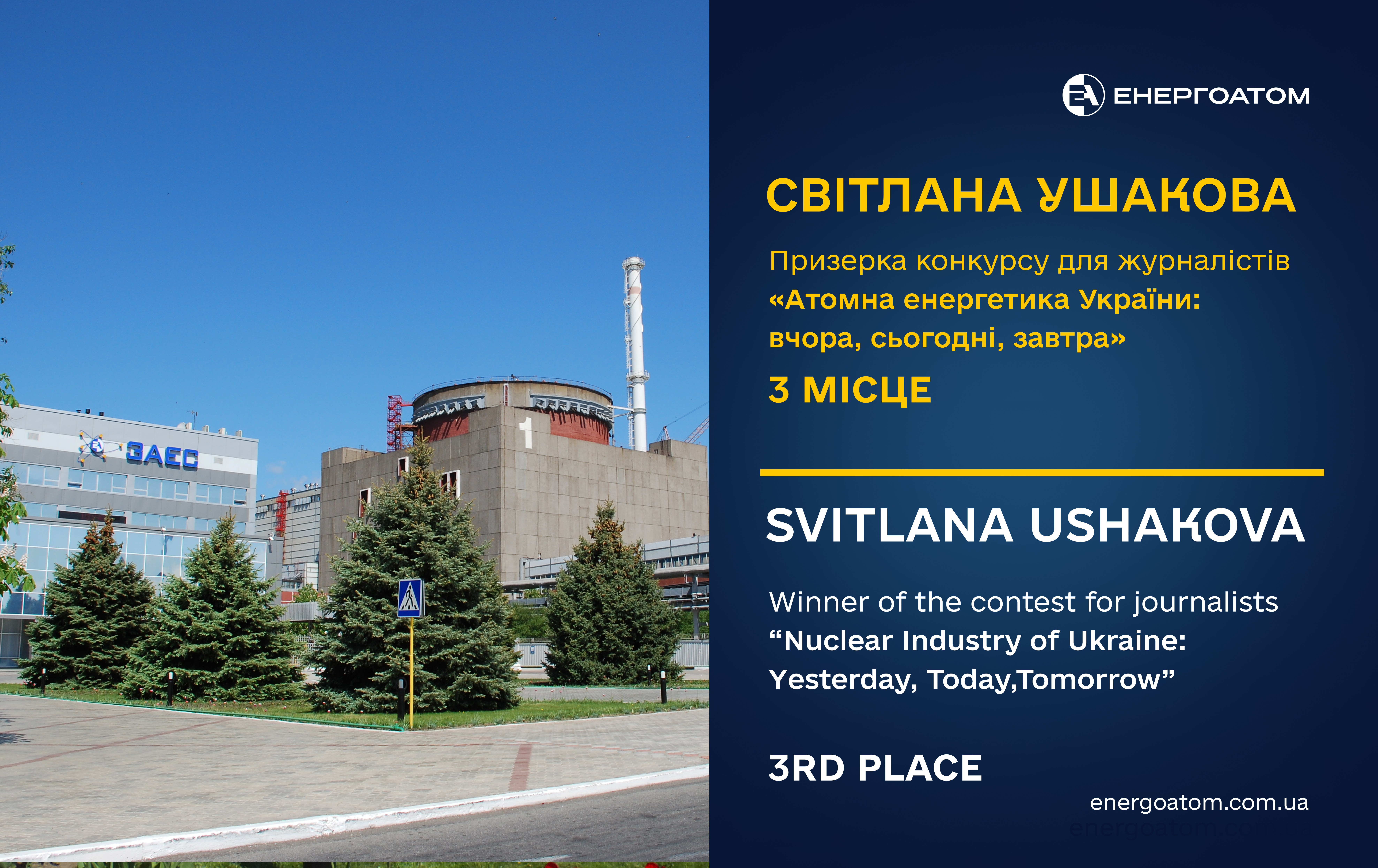
Svitlana Ushakova is a former employee of Zaporizhzhia NPP who spent more than a year in occupied Energodar. Six stories of Energodar residents who believe they will return to ZNPP
16.08.2024

Oksana Kazymyrska: the Rivne NPP, international projects, WANO Paris Center
28.06.2024
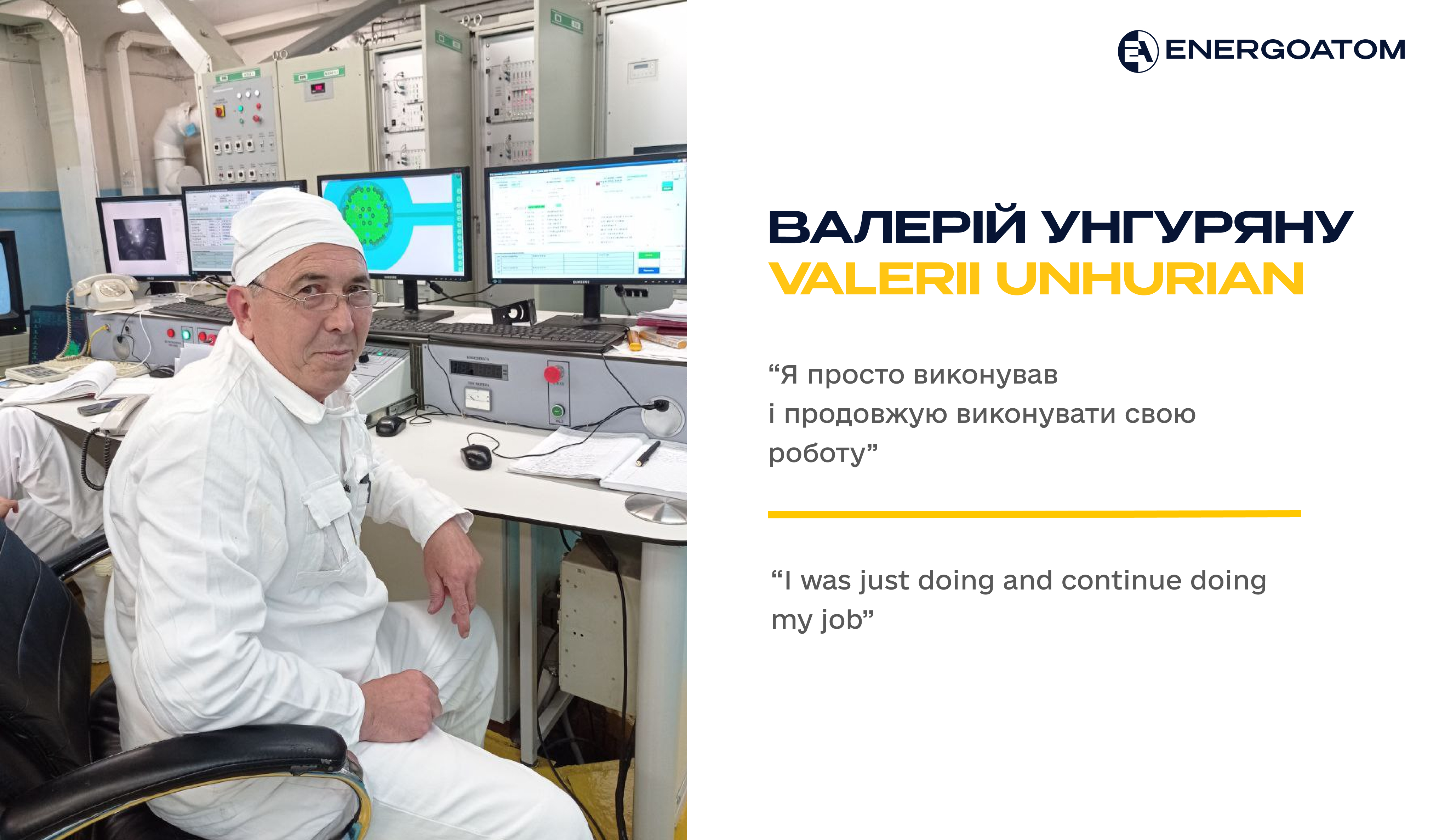
The story of Valerii Unhurian, operator of the refueling machine of the South Ukraine NPP Unit 3
31.05.2024


 UA
UA





